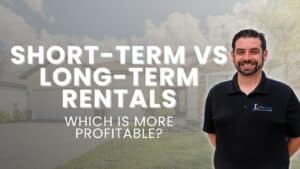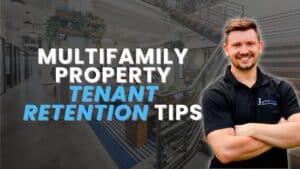One of the most common questions we get as property managers is what to do if your tenant doesn’t pay rent. As a rental property owner in Tampa, when your tenant doesn’t pay rent, then you don’t get paid. Although this situation is something that isn’t always predictable, there are steps you can take to avoid possible late rent payments and evictions.
Here at The Listing Real Estate Management, we’ve dealt with a few cases of late or missed rental payments, and we can help you mitigate these circumstances. This article takes you through what to do if your tenant doesn’t pay rent, and how you can potentially avoid this situation as a Tampa rental property owner.
Importance of Rent Payments
Whether your rental property serves as your main source of income, or gives you some extra money in your pocket, no rental property owner wants to face the situation of dealing with late or missed rent payments. Rent payments generate your income source and, in most cases, help property owners pay off a mortgage, HOA fees, and other monthly expenses.
If your monthly expenses are covered by the income generated by your rental property, late or failed payments can potentially harm your personal finances. As a rental property owner, there are steps you can take to seek financially responsible tenants, helping to avoid putting your income at risk.
How to Make Sure Tampa Tenants Pay Rent on Time
Tenant Screening
While there’s no way to 100% ensure your tenant will pay rent every month through the duration of the lease term, tenant screening processes can help lessen the chances of placing an unreliable tenant in your rental property.
Tenant screening processes investigate potential tenants’ rental payment history and evaluate their financial and criminal records. At The Listing Real Estate Management, our tenant screening process evaluates:
- Credit history
- Debt to income ratio
- Nationwide eviction search
- Background check
- Income and employment verification
- Previous two years rental history
I like to say that it’s not about the fast tenant, it’s about the right tenant. What this means is that rental property owners, landlords, and property managers should prioritize placing a tenant with a positive financial and rental history even if it takes a little bit longer. It may be tempting to accept the first application that comes across, however, unless they have a clean record and proof of sufficient income, doing so may present problems in the future.
Working with a Tampa property manager with an established tenant screening process and tenant selection criteria will help you avoid tenants who pose the risk of rent default, resulting in a successful and stress-free rental process.
Lease Agreement
Once a tenant is placed, a signed lease agreement is the legal and binding document that holds your tenant accountable for paying rent on time and in full throughout the tenancy. The lease agreement should detail every aspect about monthly rental payments including the monthly rate, due date, grace period, and actions that breach the contract and may instigate a lease termination or eviction.
If the lease agreement is violated and the tenant does not pay rent, the property owner or manager has the right to take legal action towards an eviction.
Late Rent Grace Period
Most Florida lease agreements allow for a late rent grace period of 1-5 days. The grace period gives the tenant a few days to pay rent after the due date before it is considered late or failed.
Although Florida law does not require it, I highly recommend implementing a grace period to help avoid the eviction process when it may not be necessary.
What is a 3-Day Notice?
If your tenant does not pay rent by the due date or the end of the grace period, you will want to take action immediately. A 3-day notice to cure or vacate is the first step to take towards resolving the issue of nonpayment of rent in Florida. A 3-day notice is a written notice that informs the tenant of the need to pay rent within three days, or vacate the property. The time period of three days excludes weekends and holidays.
Although a 3-day notice is the first step in the eviction process, this notice does give the tenant a chance to pay rent and continue with the lease. According to Florida law, this step must be taken, allowing the tenant to cure or vacate the premises voluntarily.

What if the Tenant Still Doesn’t Pay or Vacate After the 3-Day Notice?
If you’ve issued a 3-day notice and your tenant does not pay or vacate the premises, the property owner or manager must then proceed with filing an eviction complaint with your county’s clerk office. The information you will need to provide includes the name(s) of the tenant(s), the property address, the reason for eviction, and proof of the 3-day notice issued to the tenant.
Although having to file an eviction is an undesirable situation as a rental property owner, failing to do so will prolong the process of not getting paid. If you do not take immediate action to file for an eviction, your tenants may stay in the property and continue not to pay.
It is more beneficial to go through the eviction process and find a new tenant than to wait it out and see if your current tenants can make ends meet. If the tenant did not cooperate with the 3-day notice, they most likely will not be paying the rent.
The eviction process typically takes only three to four weeks. Although you may lose out on one month of rent, finding a new tenant with healthy finances and a positive rental background will allow your rental property and income to thrive for a prolonged period of time.
How to Prevent an Eviction
The most effective way to prevent an eviction from occurring is to hire a Tampa property manager. As property managers with years of experience, we understand the importance of taking preventative measures in the early stages of managing our client’s properties.
At The Listing Real Estate Management, our comprehensive property management experience begins with screening all potential tenants to ensure they are responsible renters and prepared to pay rent in a timely manner. In some cases, property owners who manage their own properties do not have the time or resources to conduct a proper and in-depth tenant screening assessment. Analyzing a renter’s history and assets, including a credit history check, past rental verification, financial history, and criminal record, is the most essential aspect of setting your rental property up for success.
Assessing a potential tenant’s financial situation and rental history is vital to avoid having to face the eviction process. At The Listing Real Estate Management, your boutique property manager, we take this process very seriously and can assist you in doing so as well.
Contact us today if you are in need of a highly experienced professional Tampa property manager to assist you in managing your rental property and earning a passive income. We look forward to working with you!
Copyright © 2017-2023, The Listing Real Estate Management. All Rights Reserved.





